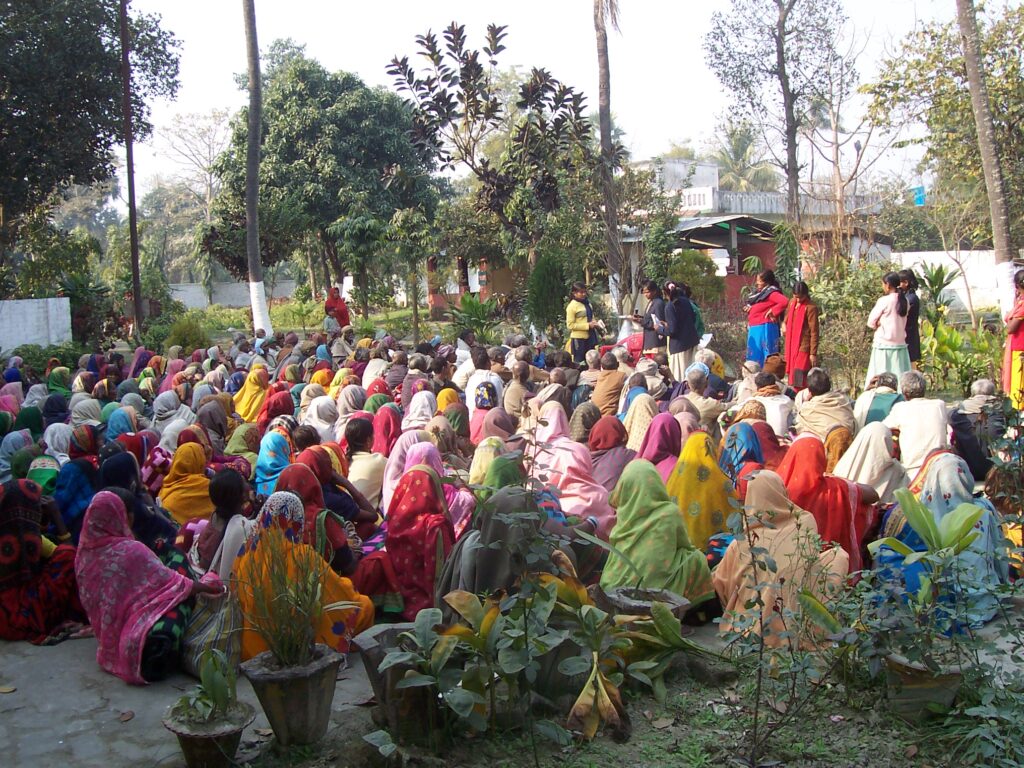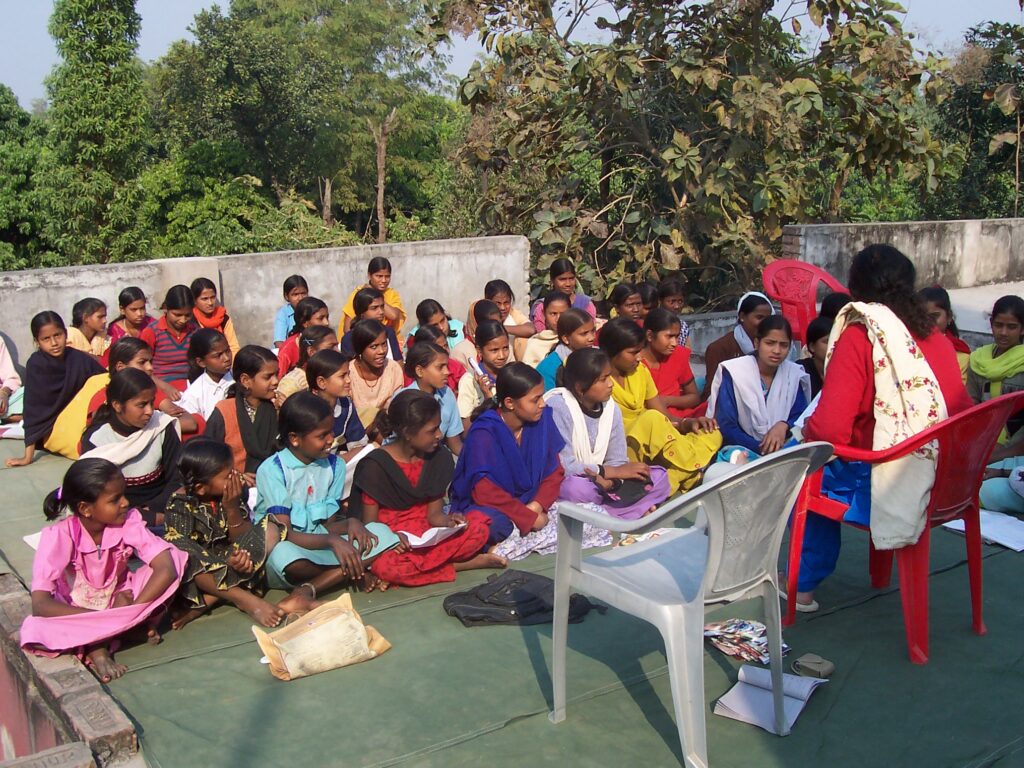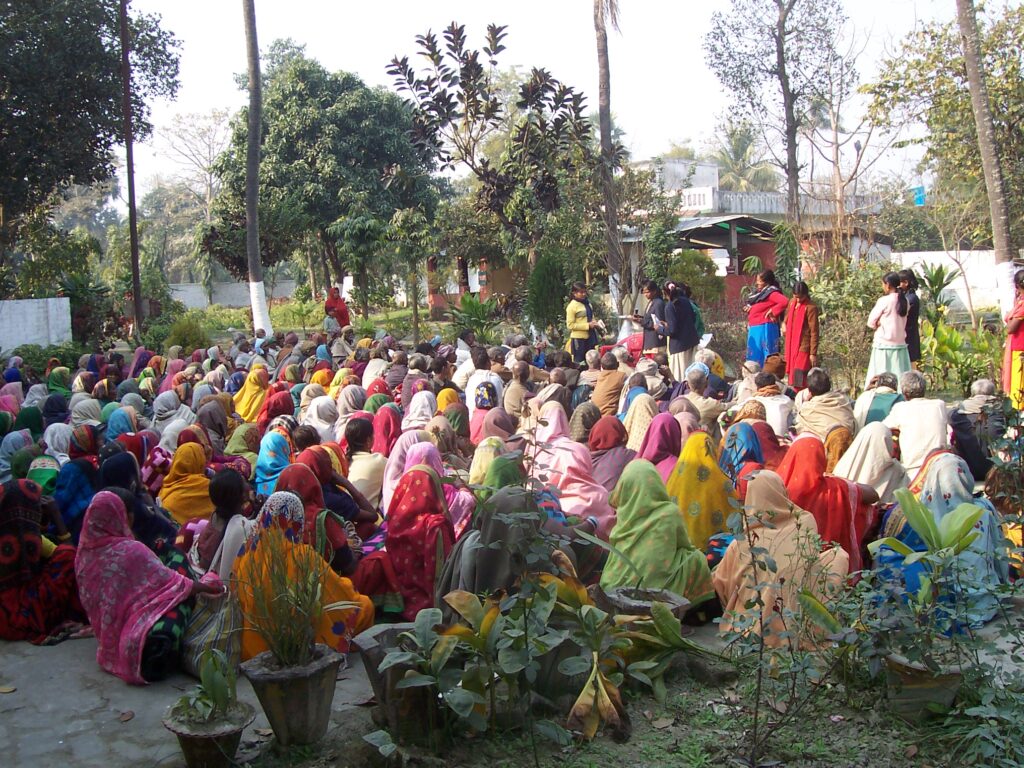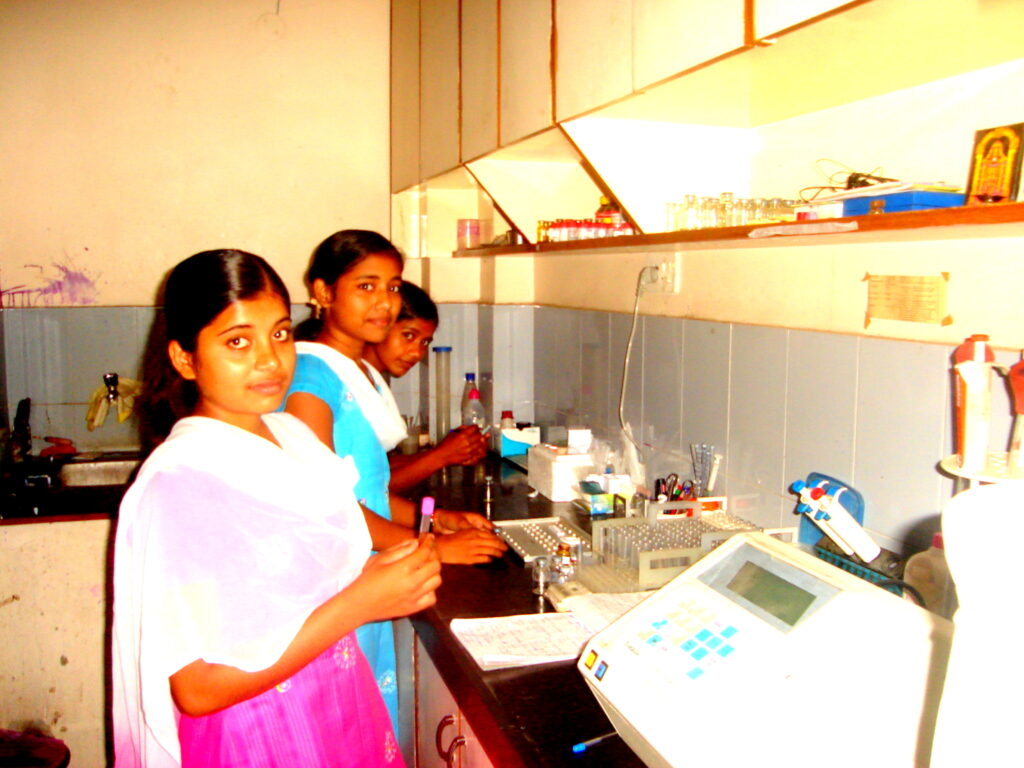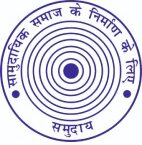Our Education Work For a group of 30 girls we select an educated girl or woman for teaching on the basis of her accessibility , aptitude and ability. This teaching session goes for 3 hours. The period of 3 hours is chosen because the children generally can concentrate for this period comfortably. The period of three hours is spent not only for the literacy of a child but for the development of his total personality and useful knowledge which includes health and environment. To make the session interesting we take help of educative games and songs. We organize sanitation and cleaning programmes also so that children be more aware about such things. We take help of writing and education materials as less as possible to make the education less costly and bookish. For literacy training we have our own schedule which does not follow alphabetical sequence. We have developed a sequence more interesting and confidence giving. To run an education centre the place is given by the villagers. It may be a hall or a Baramdah or even a cow shelter, depending upon the convenience of the villagers. Selection of 10 teachers ( Women and girls ) has been made and their orientation and training is going on. They are making a list of children whom they shall teach. In this way some 300 children are going to become functionally literate within a year. After one year they are expected to join mainstream education System and a fresh group of 300 children will join education centres Being run by Samuday. We hope that this effort of ours will change the atmosphere of the villages in favour of education which in turn shall bring many positive changes in the society.
Education project for adolescent girls
The project was to promote education in Dalit society. The batch of 30 illiterate Dalit girls joining a residential program selected from different villages were designed to make them literate. The program was to develop their personality. Apart from literacy, they were learning to plan their daily routine. This program also was very successful. Today many of them have completed their matriculation from government schools. Few of them have completed graduation also. Samuday conducted a residential program for 3 months in which illiterate girls from Dalit communities participated. The number of girls going to primary and secondary schools has increased significantly.
